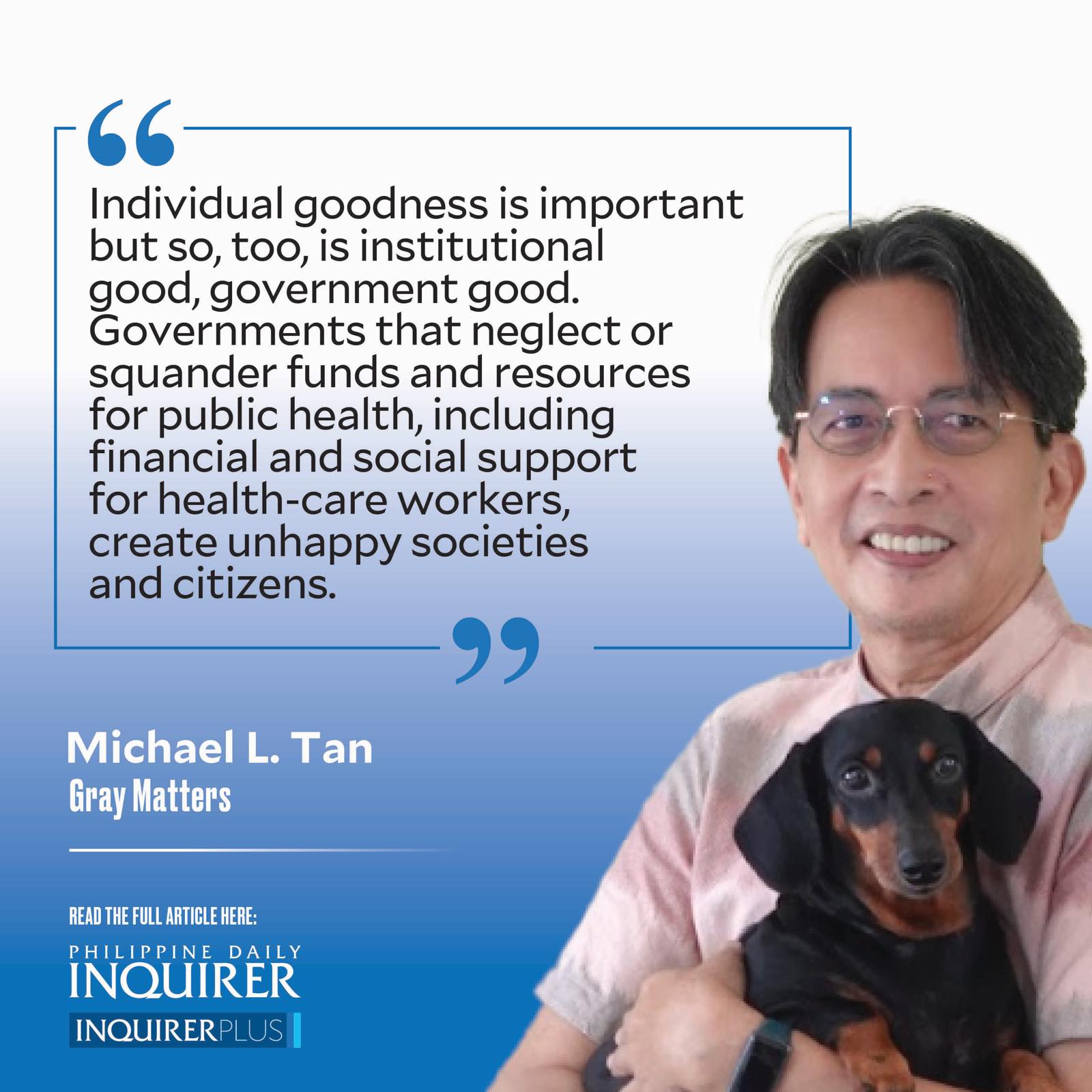Happiness and goodness

It was tiny Bhutan that suggested a gross happiness index during a United Nations General Assembly in 2011, a resolution that was adopted. The UN declared March 20 as International Day of Happiness, and the first World Happiness Report was released in 2012.
I was never really interested in these reports, feeling that happiness measurements are just too elusive but I thought I’d look at the latest report after reading an article in The Guardian citing the 2023 World Happiness Report, noting how Finland has topped the ranks for the last six years even if the Finns are not known for smiling. I thought of how Filipinos are often cited as the happiest people on the planet because we smile and laugh even in times of adversity.
The Guardian article interviewed a woman who had migrated from Zimbabwe to Finland, pointing out that Zimbabwe was close to the bottom of the happiness charts. Yet the Zimbabwean woman observed Zimbabwe is marked by “ebullience,” described in a way that reminds me pretty much of the Philippines and Filipinos.
Many years ago when I was sent to a meeting in Geneva for the first time, I felt something was grossly missing in that beautiful city, until one day in a department store I heard hearty laughter and realized that was what I had not heard since I arrived in the city. I turned my head in the direction of the laughter, already having a hunch what I would see and there she was, a clerk who I found out shortly after was Filipino.
Yes, we are a joyful people, ebulliently so. But does that mean we rank high in happiness? I’ll tell you what our rank was toward the end of this column.
Reading the full 2023 World Happiness Report, I was amazed at how much research was involved in its production through the last decade. The main responsibility for its production is the Sustainable Development Solutions Network headed by well-known economist Jeffrey Sachs at Columbia University, working closely with (“powered by” is the description in the publication) Gallup World Poll. Several universities from the United States, United Kingdom, Canada, and China are named as partners.
The core of the research is a Cantril ladder, where people are asked to rate satisfaction with their current lives, on a scale of zero (worst) to 10 (best). The results, by country, are then correlated with six variables: GDP per capita (it does have its use), social support, healthy life expectancy, freedom to make life choices, generosity, and perceptions of corruption (in government and in the private sector).
The research involves people in computer science, computational linguistics, social sciences, public health, medicine. A major development in recent years has been mining social media for people’s feelings and sentiments.
It’s not easy wading through the data yet in the end the main researchers distill everything by going back to Aristotle’s analysis of eudaimonia, Greek for “living well,” as being dependent not just on having sufficient external goods that spell out a good life in material terms, but also on having certain character virtues: moderation, fortitude, a sense of justice, the ability to form and maintain friendships, and good citizenship.
Notice that “good” runs through the concepts. Or if we are to use a fancier term, living well ties into living virtuously. Studies are cited showing how a life of virtuous generosity not only makes others happier but the giver himself or herself.
The researchers do recognize that virtue is not always rewarding and this 2023 report mentions something particularly relevant for Filipinos: full-time “voluntary” caregivers for children and the elderly have quite low life satisfaction. I used quotes for “voluntary” because we are talking about people who are not quite that voluntary, people forced to become caregivers by the family, daughters-in-law, for example, are often asked to stop work and to care for elderly in-laws.
Basic “goodness” means we need to care for our children and the elderly but this cannot happen without social support for the caregivers. The many Filipinos who end up working as paid (hopefully with just wages) caregivers, locally and overseas, are happier, and more satisfied with their lives than those conscripted, often unpaid.
Individual goodness is important but so, too, is institutional good, government good. Governments that neglect or squander funds and resources for public health, including financial and social support for health-care workers, create unhappy societies and citizens.
Yes, we Filipinos will laugh at adversity, but with more than a tinge of bitterness and resentment that builds up. Wouldn’t it be better if we could laugh out of genuine joy with a good life, in a good society?
Our 2023 rank in the World Happiness Report, out of 137 countries, was 76th.
mtan@inquirer.com.ph
















